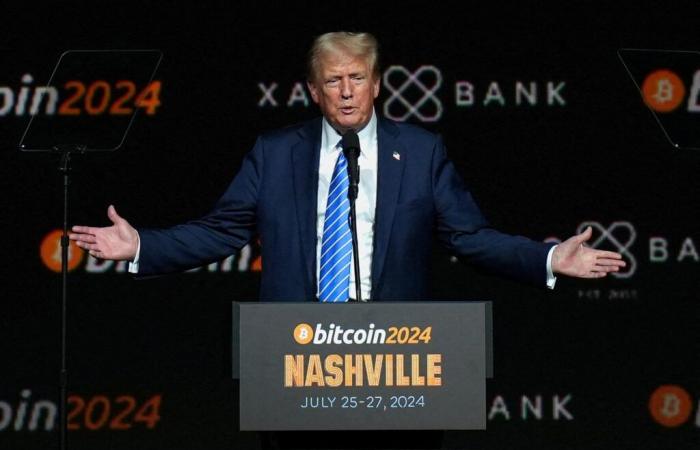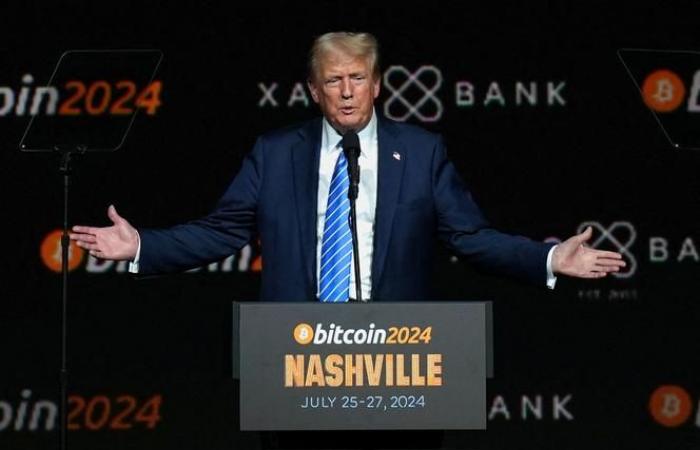It was a night of new heights for cryptocurrencies. Overnight from Tuesday, November 5, the value of bitcoin reached an all-time high, surpassing $75,000 (€70,000) for the first time. Ether, the next major cryptoasset, also saw its value rise, nearing $2,600, as did “meme coins,” parody digital currencies notably including dogecoin, promoted by Elon Musk, a fervent supporter of the Republican candidate.
These surges reflect the industry’s confidence in the face of the US election results. Firstly, because the Senate has swung to the Republican camp: Democrat Sherrod Brown, who was in favor of greater supervision of cryptoactives, has been replaced by Bernie Moreno, a 57-year-old former car dealer who is now a blockchain entrepreneur. Some $40 million was invested in cryptocurrencies to defeat Brown, reported US channel CNBC.
Added to this, of course, is Donald Trump’s return to the White House. “We are on the brink of a new American Renaissance,” reacted Tyler Winklevoss on social media network X, for example. A few hours earlier, his brother Cameron encouraged internet users to slip a Trump ballot into the ballot box. The two founders of cryptocurrency exchange Gemini are among the Silicon Valley personalities who financially backed the Republican candidate.
Patchwork of pro-crypto measures
If the cryptoasset world is jubilant at the idea of a new term for the former real estate tycoon, it’s not least because he’s been playing to his strengths since May. Originally a vocal critic of bitcoin, the Republican has since made a 180-degree turn and now champions cryptoassets. “The US will be the crypto capital of the world,” he declared on July 27, on stage at the Bitcoin Conference in Nashville, Tennessee, to a jubilant crowd.
Among the measures the billionaire intends to take once re-elected are to abandon all plans for a digital dollar, sack Gary Gensler (chairperson of the US Securities and Exchange Commission, who is renowned for his strict stance on the sector), and establish a strategic reserve of bitcoins by the US government. But, more surprisingly, he also wants to ensure that the “mining” – in other words, the creation on the network – of bitcoins takes place solely on US soil. This last idea was a perplexing one, given the decentralized nature of the mining process, and left a number of observers wondering about the former president’s real understanding of how cryptoactives work.
You have 36.21% of this article left to read. The rest is for subscribers only.







